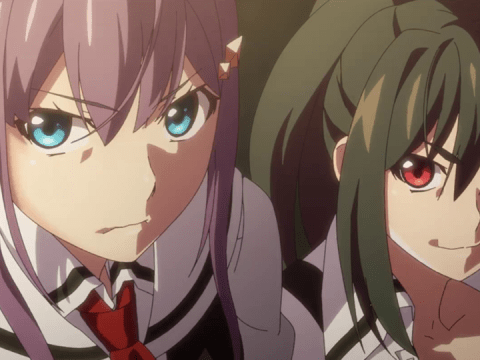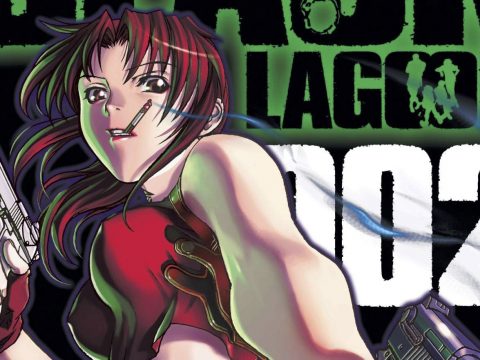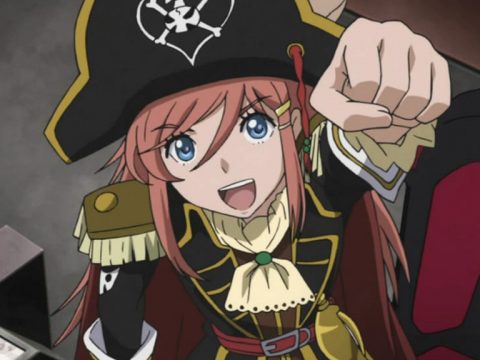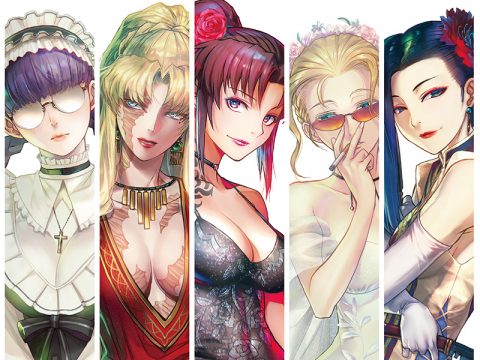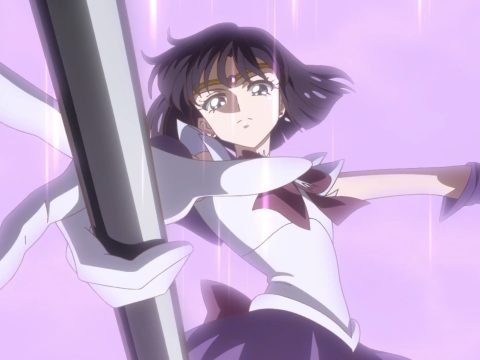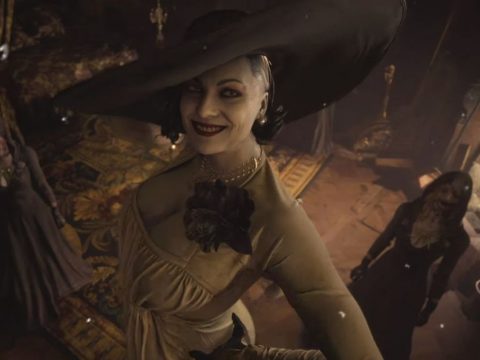
At this point, you may have experienced Black Lagoon in one form or another. Whether via Rei Hiroe‘s original manga—the graphic novels of which are being published in North America by Viz (the series is still ongoing in Japan)—or the animated adaptation that’s under the lens here, many action fans have found it to be a breath of fresh air, gasped from an atmosphere of mostly wimpy protagonists and forgettable firefights. I can’t argue with that, as Madhouse’s abrupt first season left me wanting more as soon as the final episode’s credits rolled.
What makes Black Lagoon more interesting than your typical anime action fare is the group of mercenaries at the forefront, executing various deadly missions from the cramped confines of the titular PT boat. There’s the hot-headed, dual-wielding maniac, Revy; the reluctant white-collar worker, Rock; the brawny captain of the Black Lagoon, Dutch; and Benny, the pony-tailed brainpower that tends to avoid the brunt of the team’s countless firefights.
Rock is the standout by a wide margin, no matter how many DVD covers and advertisements have Revy plastered in the center in the classic combination of “sexy and menacing.” His character goes through the greatest transformation throughout the 12 episodes that comprise season one, starting off as a somewhat sheepish white collar worker to something much more. When Revy and Dutch kidnap him in the first episode, he’s understandably meek, going through all the motions of a hostage held at hot-barreled gunpoint.

Rock then goes through a quick case of Stockholm Syndrome, settling on his fate and inevitably starting to see these mercenaries as his only lifeline in their current situation. He depends on them and, with nowhere else to go, is at a loss when they want to part ways. Despite all of this, he still remains far separated from the kind of sheepish protagonist one might expect when he first appears. He reacts pretty realistically to the extreme circumstances, and the chain reaction of events that follows ultimately finds him joining up as a crucial part of the Black Lagoon team. From beginning to end, his are the ideal eyes for the audience to view the series through.
A show can have all the interesting characters in the world and still find itself floundering in every other department. Thankfully that’s not the case with Black Lagoon. So many action shows build and build to their set pieces, only to fall flat when it’s finally time for the payoff. Either it ends up being inconsequential padding or it’s just visually ineffective. The gunplay here is neither, and each new scenario offers something different than those preceding. One of the standouts involves a young boy’s maid who, unbeknownst to him, is a ratta-tatta robot with a bar-bombing shotgun umbrella. Gun-toting maids may not be wholly original, but it’s a single example of the amount of variety that takes place in such a short number of episodes.
I also appreciate the format of Black Lagoon in general. The way each episode ends, sometimes abruptly, fading to the somber end theme that plays over Revy’s zombie-like destructive shamble across the sand. It’s a very melancholy way to close out what is typically frenetic and over the top, and it speaks loudly of the type of care put into the show’s overall presentation.

Black Lagoon isn’t perfect by any means, but it’s incredibly consistent and fast-paced, something that can be attributed both to Sunao Katabuchi’s overall direction and his scripts culled from Hiroe’s source material. Only a few caveats hold it back on occasion, one of which is Madhouse’s animation. It hits the high points successfully, but the aesthetic still suffers from that sterile digital look. Sign of the times, sure, but I’d like to see something a little grittier accompanying the type of scenarios in which Black Lagoon specializes.
There’s also the issue of some of the characters not receiving proper development, something that’s difficult to hold against the series too harshly at this point. With Second Barrage available now and a third season on thehorizon, there’s plenty of room for growth. As it stands, a potentially interesting character like Revy is mostly relegated to the hot-headed gun of the group and left at that. There’s obviously more under the surface, and she works well as an antithesis to Rock as well as a portal  into a world to which he wasn’t initially keen, but she could use more fleshing out if she has a higher purpose in the long run.
into a world to which he wasn’t initially keen, but she could use more fleshing out if she has a higher purpose in the long run.
None of this changes the fact that I’m ready to dig into Second Barrage as soon as possible. In fact, thanks to the way the first season’s finale is presented—with Episode 12 transitioning directly into a preview for episode 13—it doesn’t even feel like I should be moving over to another collection to watch the second season. This is still a solid steelbook set. Even if the extras-only fourth disc is a lightweight affair to say the least, it’s the best and most affordable way for new viewers to check out the show. As for the rest of you that have already barreled through both seasons and are now sitting it out until the third debuts, I’ll be in the same boat sooner than later.
Studio/Company: Funimation
Available: Now
Rated: Not Rated


